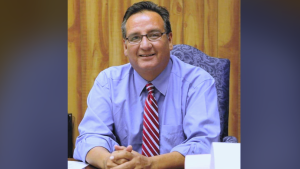Donald Trump's sweeping global tariffs have been struck down by the US Supreme Court, in a major blow to the President's economic agenda. With a 6-3 majority, judges ruled that President Trump exceeded his authority when he imposed the levies using a law reserved for national emergencies.
Also: an AI summit in India has ended without a global agreement on governing the technology, after strong opposition from the United States. British police continue to search the former home of Andrew Mountbatten-Windsor, after the former Prince was released under investigation. Iran says it will be ready to submit its plan for a possible nuclear agreement with the US in the next two or three days. The BBC has identified the names of more than 180,000 Russian soldiers killed in the war in Ukraine. In a world first, lion DNA has helped to convict poachers in Zimbabwe. And Spanish construction workers have finished work on the tallest tower of the Sagrada Familia basilica in Barcelona.
The Global News Podcast brings you the breaking news you need to hear, as it happens. Listen for the latest headlines and current affairs from around the world. Politics, economics, climate, business, technology, health – we cover it all with expert analysis and insight. Get the news that matters, delivered twice a day on weekdays and daily at weekends, plus special bonus episodes reacting to urgent breaking stories. Follow or subscribe now and never miss a moment. Get in touch: globalpodcast@bbc.co.uk

